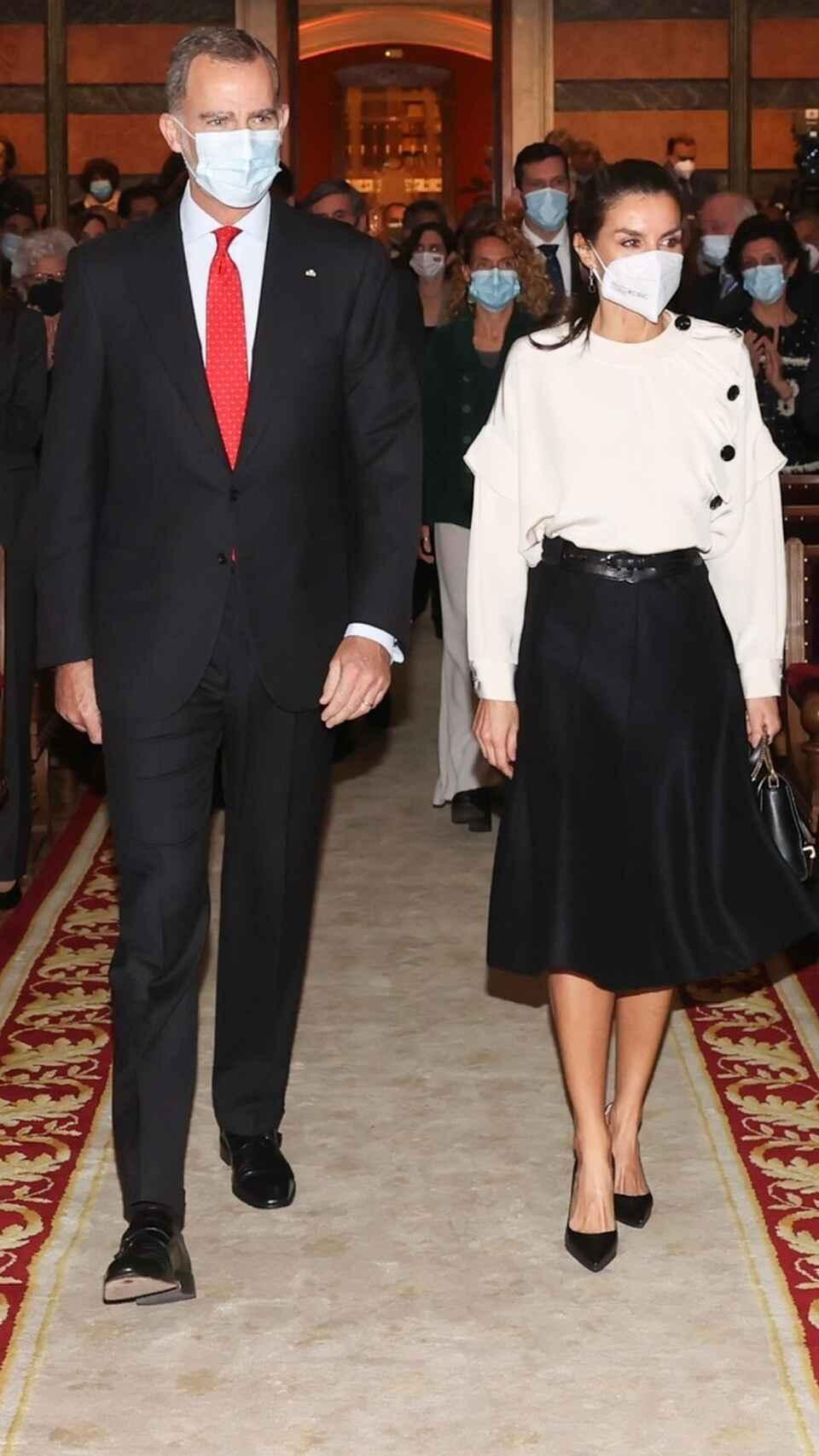Only she survived the air disaster that the USSR wanted to hide
Surviving a fall from 5,220 meters clinging to a piece of plane fuselage did not make Soviet citizen Larisa Savitskaya news, but an uncomfortable witness. On August 24, 1981, the An-24 passenger flight in which she was returning from her honeymoon with her husband collided in the open sky with a Tupolev 16K bomber. The then twenty-something was the only survivor. She not only withstood the eight minutes of descent and bumping into the trees, she also endured three days injured and alone in the open. But the Soviet authorities hid the story of that exceptional event. Following its traditional formula of opacity and secrecy, the incident was declared classified. Nor did Savítskaya know what happened on that tragic day until after the fall of the USSR, 10 years later. Forty years after the accident, a documentary, Eight minutes to the ground, now focuses on this story of survival and hiding, which next year will address the film Odná (Una).
“They didn't tell me anything. They only addressed my mother and told her: 'Forget what happened,' Savítskaya explains to EL PAÍS. “My mother signed some documents. She didn't know what had happened for 10 years. Neither the number of passengers nor any version of the events”, relates the survivor, who has managed to assimilate that traumatic day over time and rebuild her life: “Now I am fine, I am a happy person”.
In 1985 an article about the catastrophe was published for the first time. The pilots were blamed and one of the aircraft was said to have continued to fly. It took until the 1990s for the investigation to be declassified, and only then did the huge mistakes made by the Soviet air force become known. The flight plan for the Tu-16K crossed a civilian route without warning the bomber pilots, and the controller at the military base who was to have monitored the Tupolev failed to track aircraft by radar. Visibility was good, beyond 10 kilometers, but the Tupolev suddenly met the civilian Antonov in full ascent. In total, 37 people died: 31 on board the passenger plane and the six crew members of the Tu-16k.
The event occurred five years before Mikhail Gorbachev's glasnost, the search for transparency in the shadowy Soviet Administration. However, neither the secrecy of the powerful Russian military apparatus nor the zeal to cover up their own mistakes never disappeared. The accident reports were kept in a drawer and the president himself did not set an example when the moment of truth arrived: he took a month to appear after the accident at the Chernobyl nuclear power plant in 1986. A government opacity that is still alive even today: In 2019, while an increase in radiation was detected in the frightened city of Arkhangelsk, the government remained silent for four days that there had been an explosion in a laboratory for new nuclear-powered weapons.

"All because of secrecy," Savitskaya laments today, emphasizing that military and civilian air corridors in the USSR were not coordinated. “Several more cases like this occurred in the country.” The only survivor of the plane crash received 75 rubles from Aeroflot for the damages suffered, about 110 dollars at the time, equivalent to 330 dollars today (287 euros), and 150 rubles more for the death of her husband.
Larissa was 20 years old. She knew Vladimir Savitsky through a mutual friend, although they started dating her when she was already studying at the Moscow Pedagogical Institute. They got married quickly and honeymooned with his parents. When they boarded the plane to return from Komsomolsk-on-Amur (east) to Blagoveshchensk (near the Chinese border), the plane was half empty and they sat in the back for comfort. A stewardess invited them to sit in the front, but they refused and moved back to the seats of other passengers who did agree to move forward. Savitskaya saw her original seat fly off after the crash.
Join EL PAÍS to follow all the news and read without limits.Subscribe"I woke up in the hallway," recalls the survivor. The bomber's attack tore off both wings and part of the plane, and its area began to rotate without actually turning over. Coming back to herself, the young Ella returned on impulse to her seat and fastened her seat belt. Vladimir was in the next room, dead. “I knew at that moment that my husband had passed away. He had blood on his head, on his suit...”, she recalls.
The fuselage progressively shattered in that eternal descent. Due to the decompression it was intensely cold, tens of degrees below zero, and Savitskaya was aware of everything. "People were screaming," she says. She also saw the last minutes of several passengers. Holding on as best she could to her seat, which was no longer completely fixed to the ground, scenes from a movie she had seen the year before with her husband, Miracle in Green Hell (1974), where the protagonist was saved, came to mind. just as she was doing at that very moment. Fortunately for her, the flexibility of the birches cushioned the impact with the ground.
"There are things that are not forgotten. No matter how hard I've tried, the plane crash is still with me,” she says today. The survivor regained consciousness in the middle of the forest. She had broken arms, ribs, and five points on her spine, and her teeth were broken. Around her the mist created a dreamlike landscape. In it was the lifeless body of her husband.
“I didn't know where to go, surrounded by trees. It was terribly cold and it rained a lot. She wanted to sleep, but she couldn't because of the pain,” describes Savitskaya, who decided to wait for the rescue teams. She covered herself with the blankets she found from the seats and protected herself from the harassment of the mosquitoes with some plastic. To quench her thirst, she drank from a puddle. “She was soaking wet, she just wanted to warm me up,” she remembers. Suddenly, a helicopter flew over her area and she signaled to it, but no one came to her aid, they mistook her for some geologists who worked in the region. On the third day she gave up hope that they would find her there. Very weak, she began to walk. She had barely moved on when she was found by a rescue team. The next thing she remembers is waking up again in a hospital.
After the accident she not only had to keep quiet. She, too, did not receive any psychological support. “That concept did not exist. Who helps in these types of situations? Mom Dad. When I moved to Moscow to learn psychophysiology, I studied myself. I managed to help myself,” she adds.
The survivor has never worked as a psychologist with other accident victims, but her experience with post-traumatic stress has been supportive for Afgantsi, veterans of the Soviet war in Afghanistan. “They have a similar state of mind. Understanding that I was not the only one, that there are more people who have survived similar things, helped me”, says Savítskaya, who has rebuilt her life and today looks around her and sees “a loving husband, a job, a son and a granddaughter". She, too, has not been afraid of flying again: “A projectile does not fall twice in the same place ', this phrase is about me”.
Follow all the international information on Facebook and Twitter, or in our weekly newsletter.








